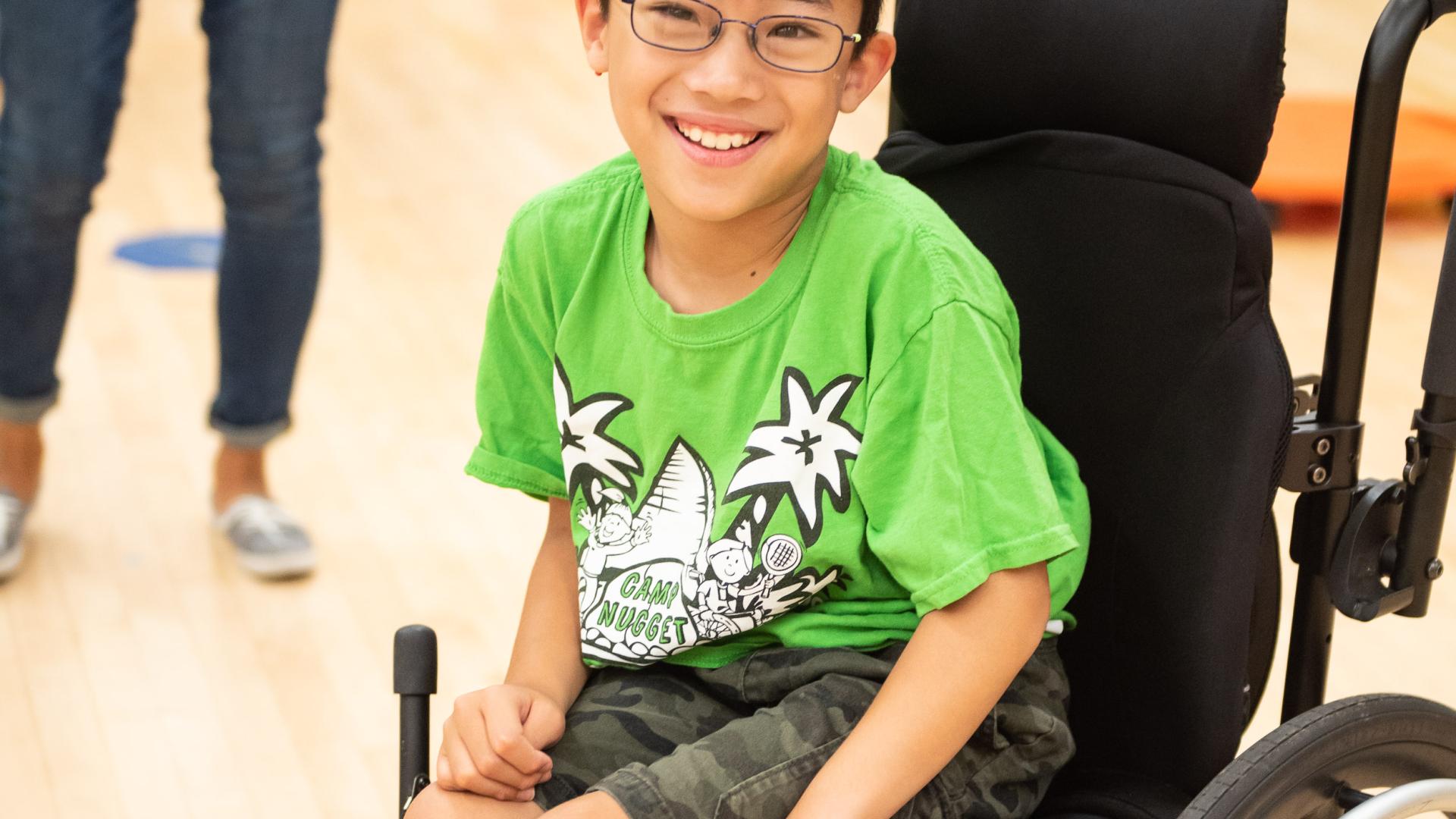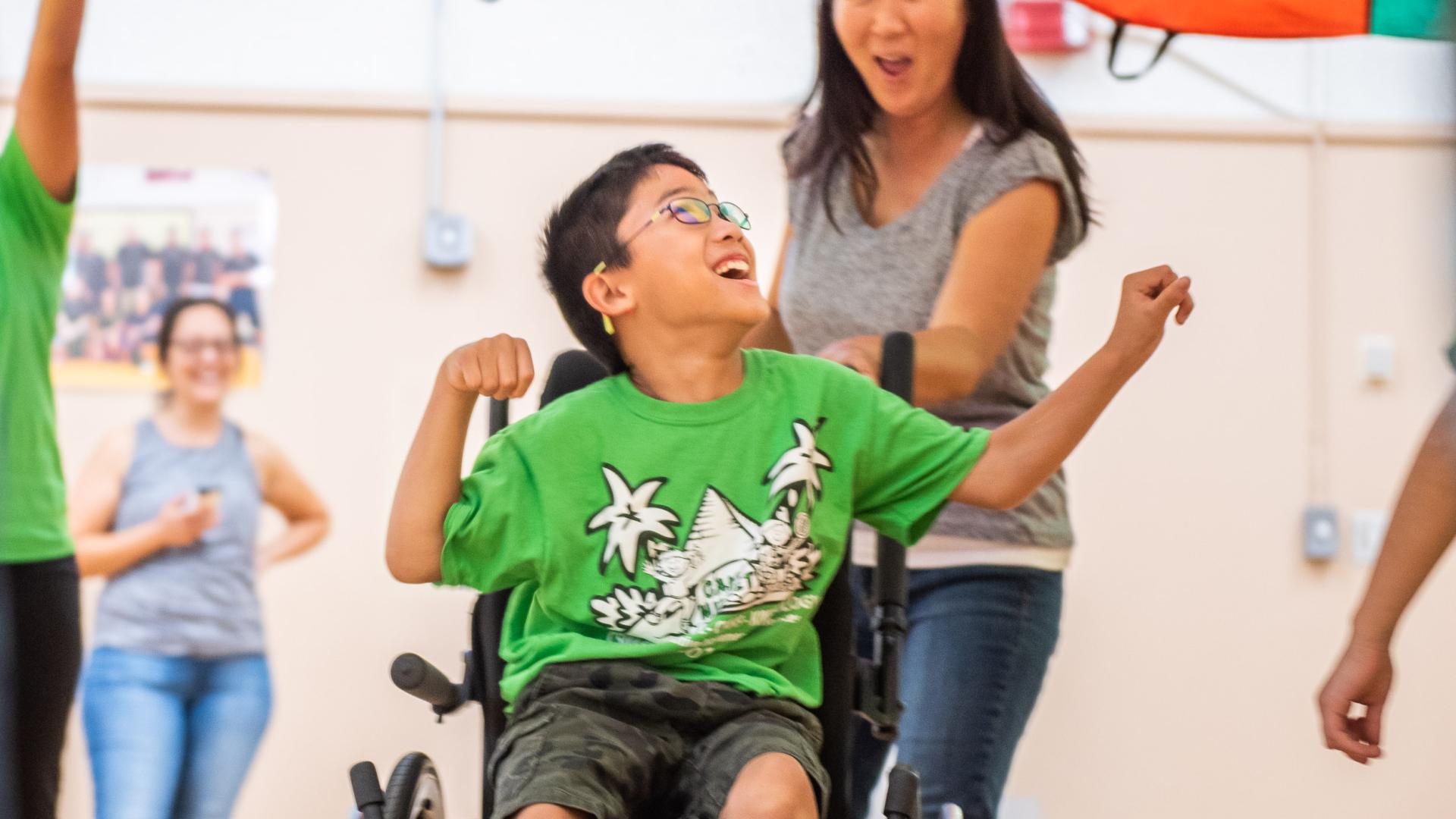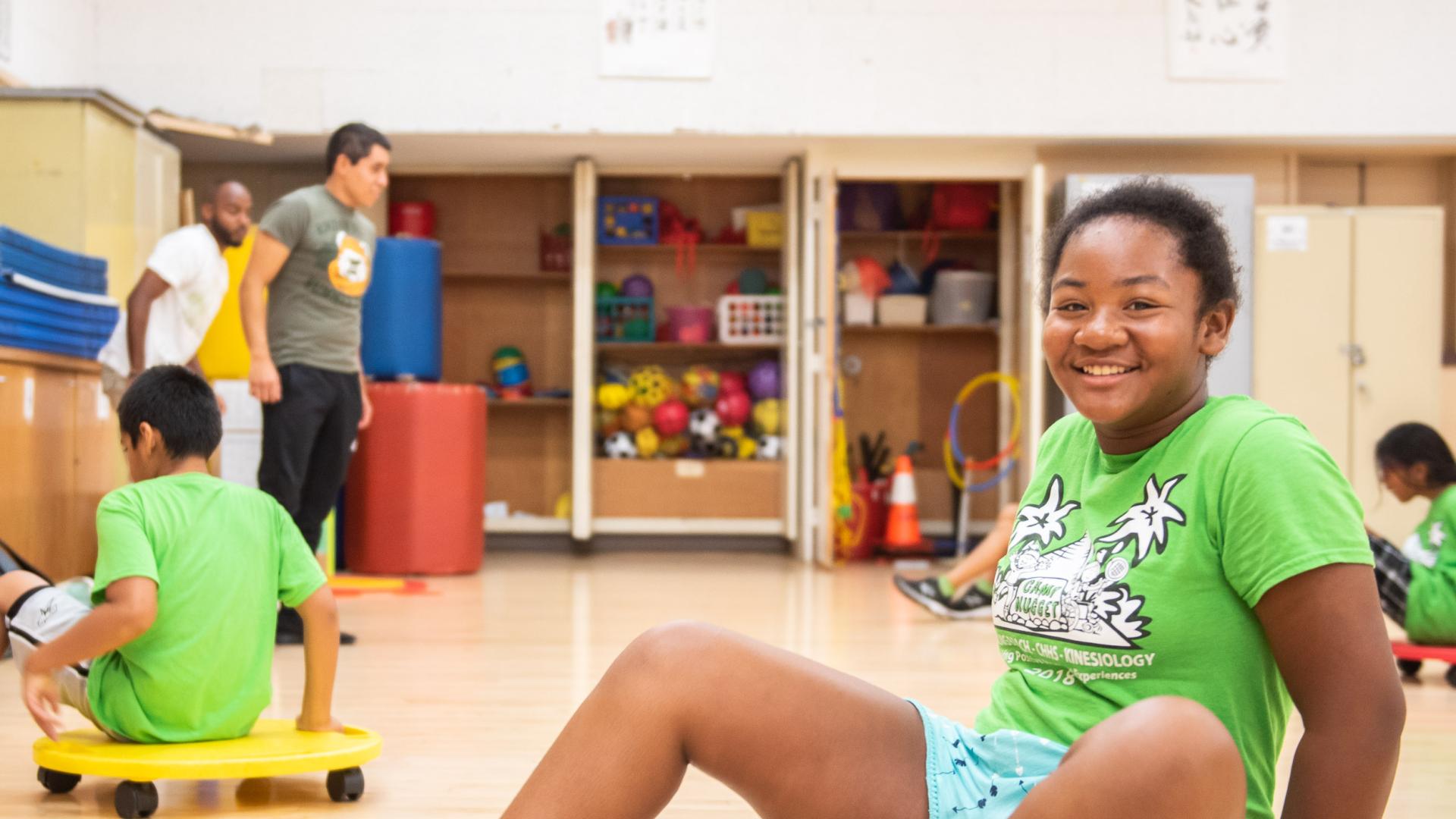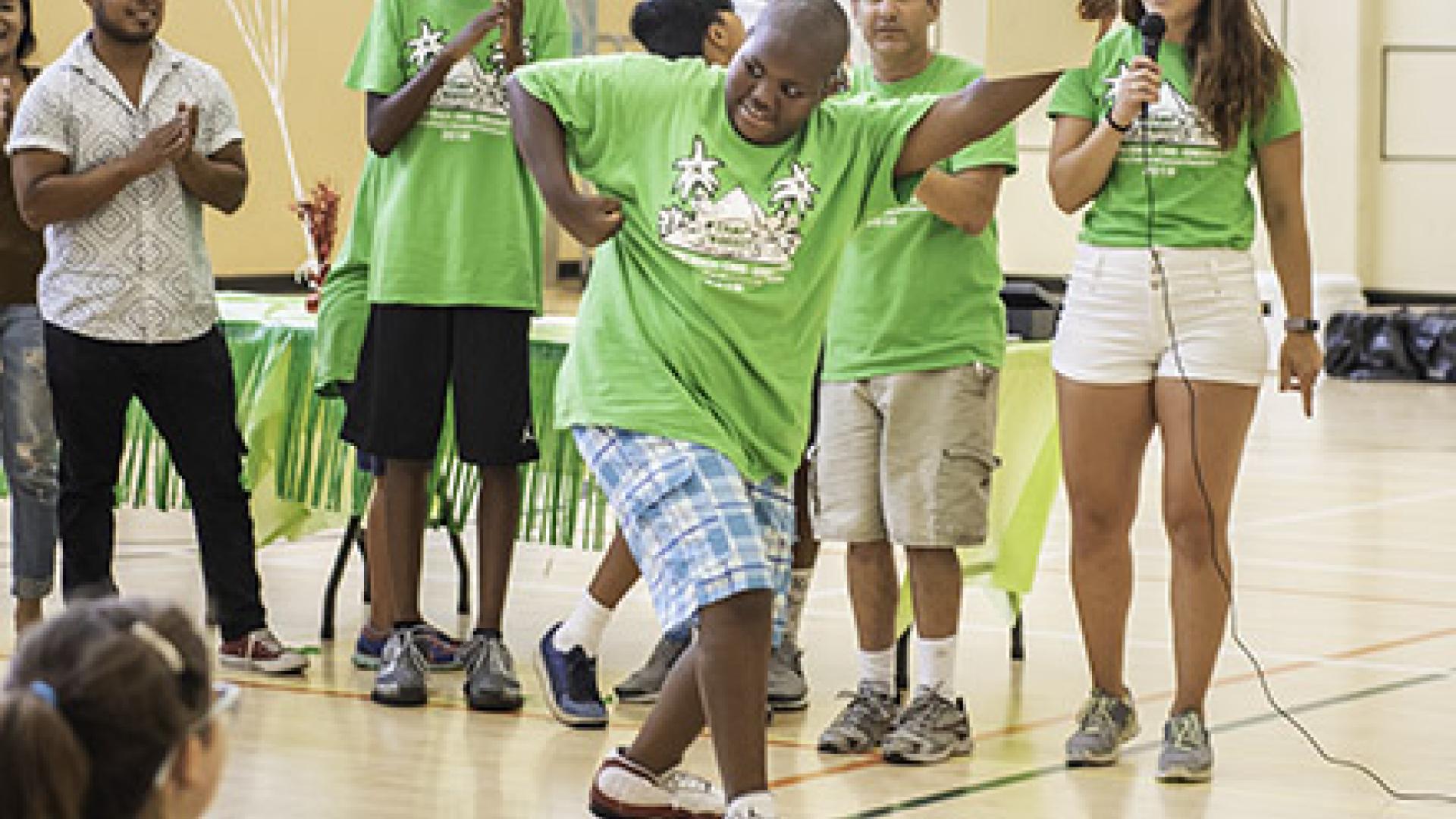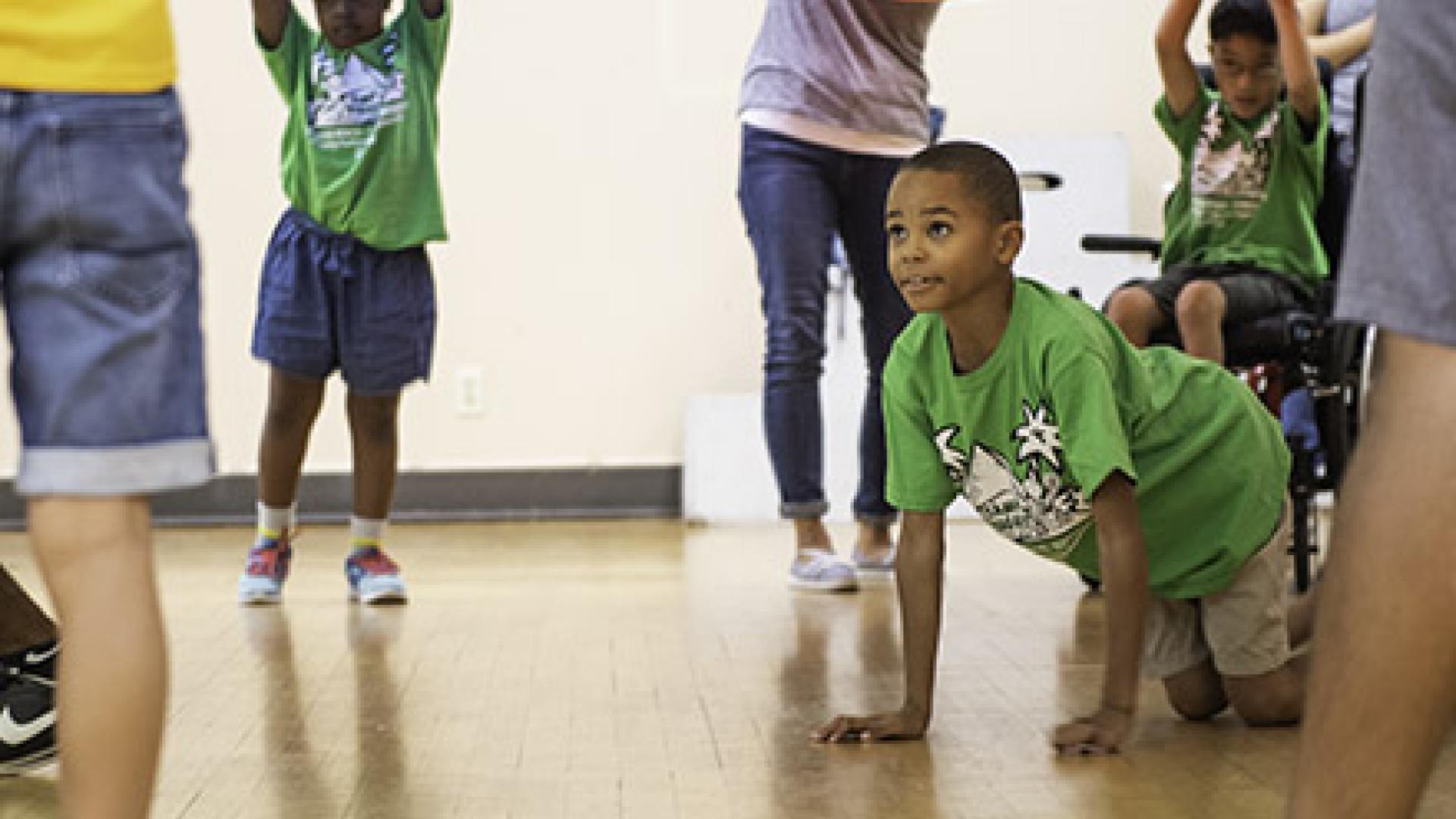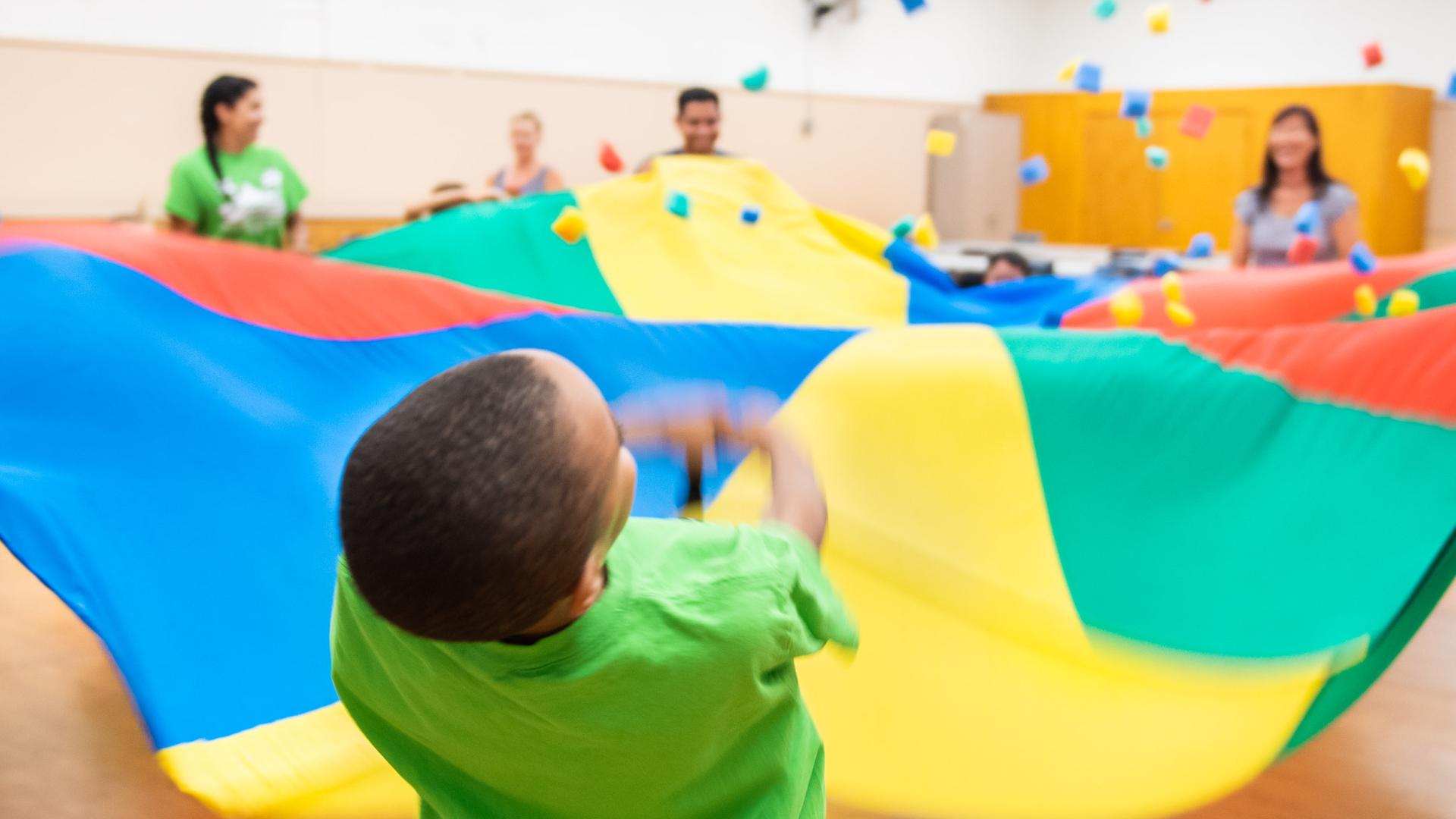Special needs kids get moving at Camp Nugget
The young girl’s face lit up every time she caught the small bean bag, a wide smile forming after each toss. It was a seemingly small task for most kids, but for Sophia and the other participants at Camp Nugget, catching, running and swimming are immeasurable accomplishments.
Camp Nugget is a four-week camp designed for children with special needs and disabilities, ages 5-12 years old. Children participate in a variety of activities under the guidance of students from the Department of Kinesiology who are studying to receive an adaptive physical education teaching credential.
“At the camp, you see the tremendous growth in the kids’ attitudes toward doing activities despite their disabilities,” said director Barry Lavay.
“Camp Nugget also is a great opportunity for parents because they can’t put their child in just any summer program that doesn’t provide support for their special needs child.”
The camp provides children with health-related physical fitness exercises, fundamental motor skills, aquatics, cooperative games and sports experiences in small group settings. Erica Zuniga, a mother of two autistic sons, said the camp experience means “the world to me and my sons.”
“They get exercise, learn about other disabilities and are accepted for who they are,” Juniga said. “I cannot be more thankful for what it does for them. My kids love it here and are always asking when is camp?”
She said her one Noah lost 10 pounds after a month of activity.
According to Lavay, Camp Nugget believes movement is important and beneficial for everyone. Instructor Jacob Dupui said it can be a challenge for parents to get their special needs children to engage in physical activities, and he enjoys helping these kids achieve success.
Dupui said that one girl couldn’t swim a lap at the start of camp, but by the end could finish three laps. He couldn’t help but smile at the memory.
“When I see that kind of thing, it always amazes me and it adds to the fire that I have for helping them,” Dupui said. “It’s a proud moment.
“It motivates me to know that they can be social or be physically active because of my service.”
